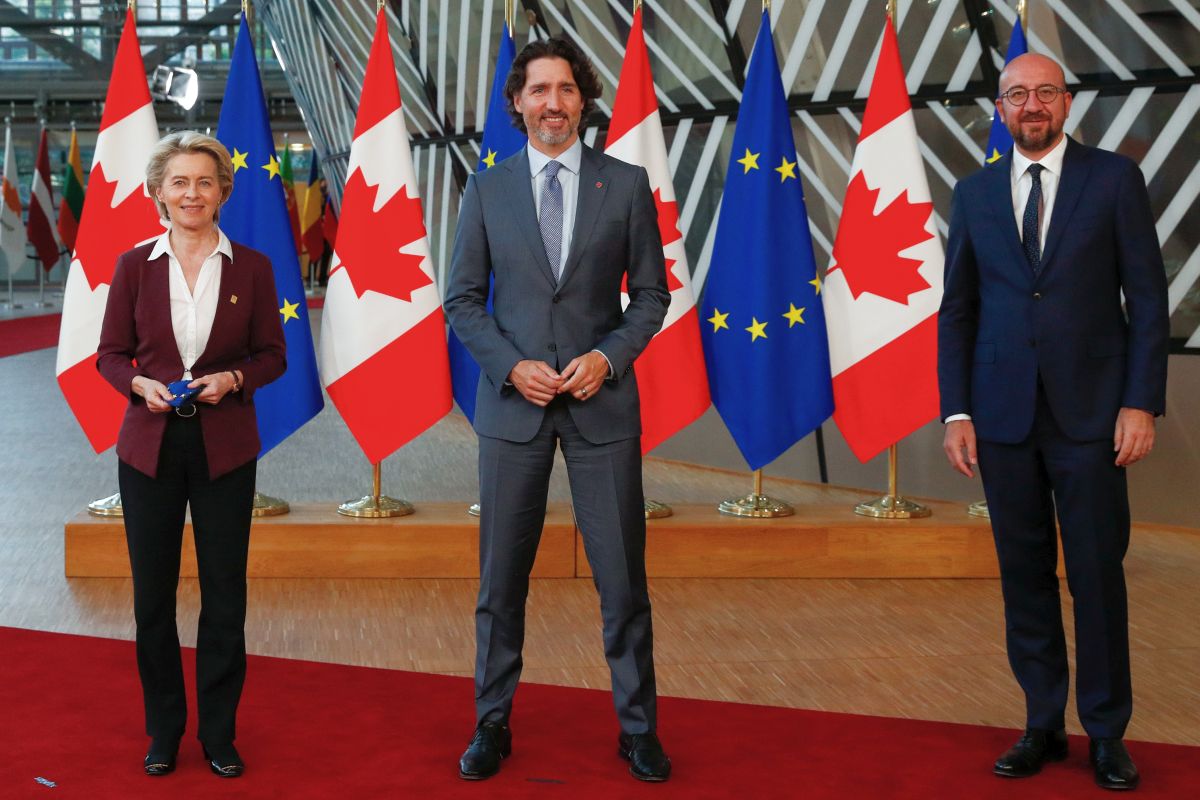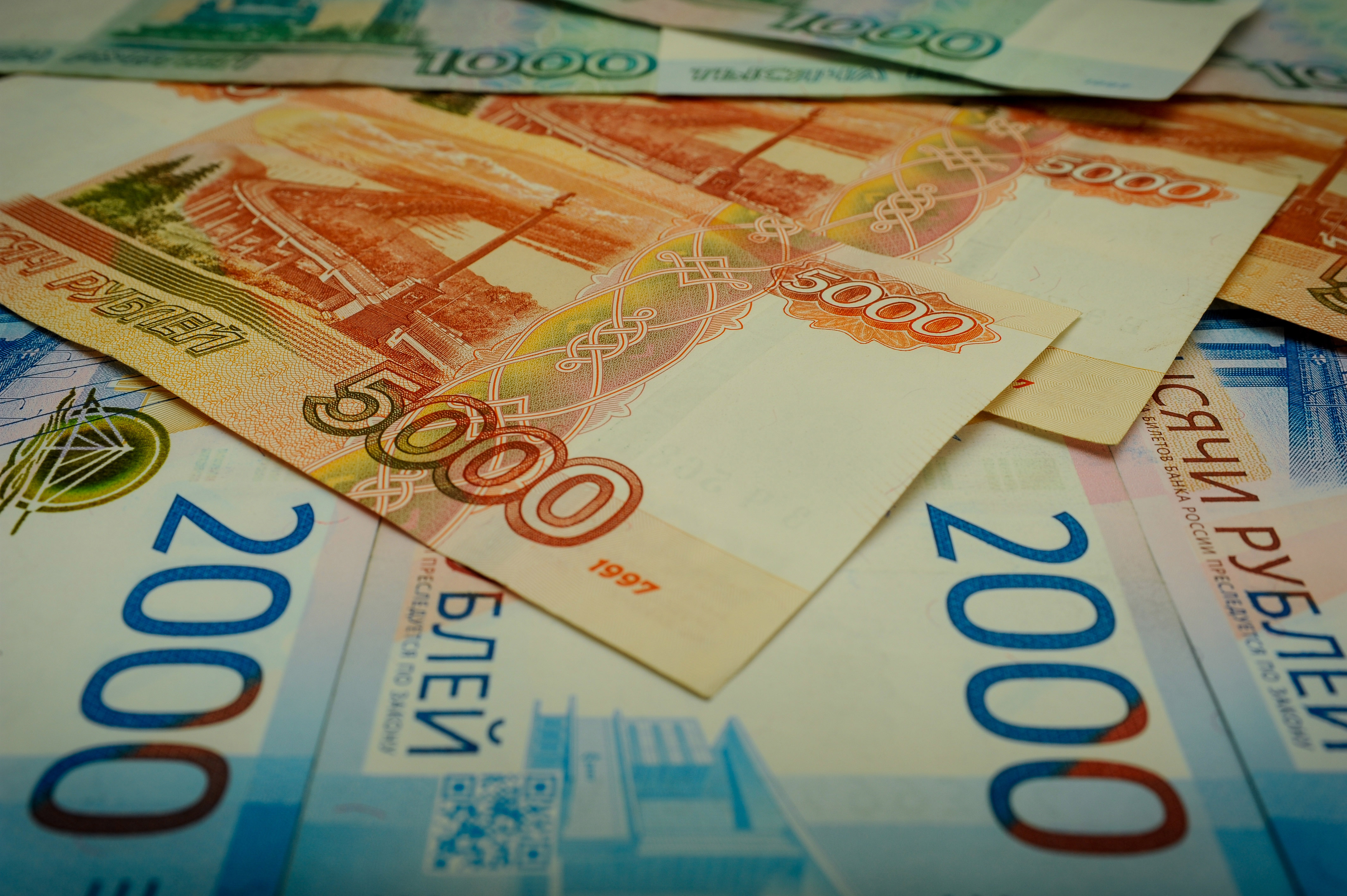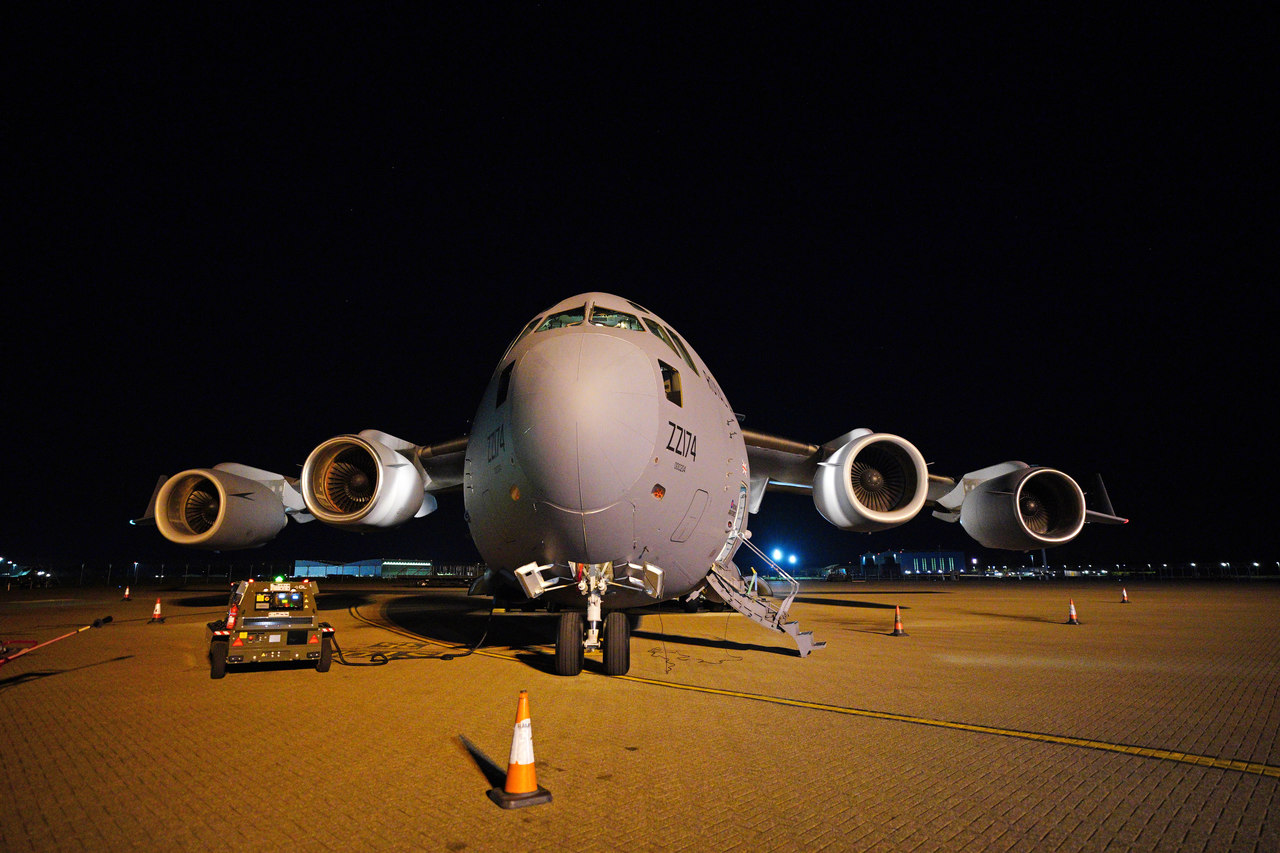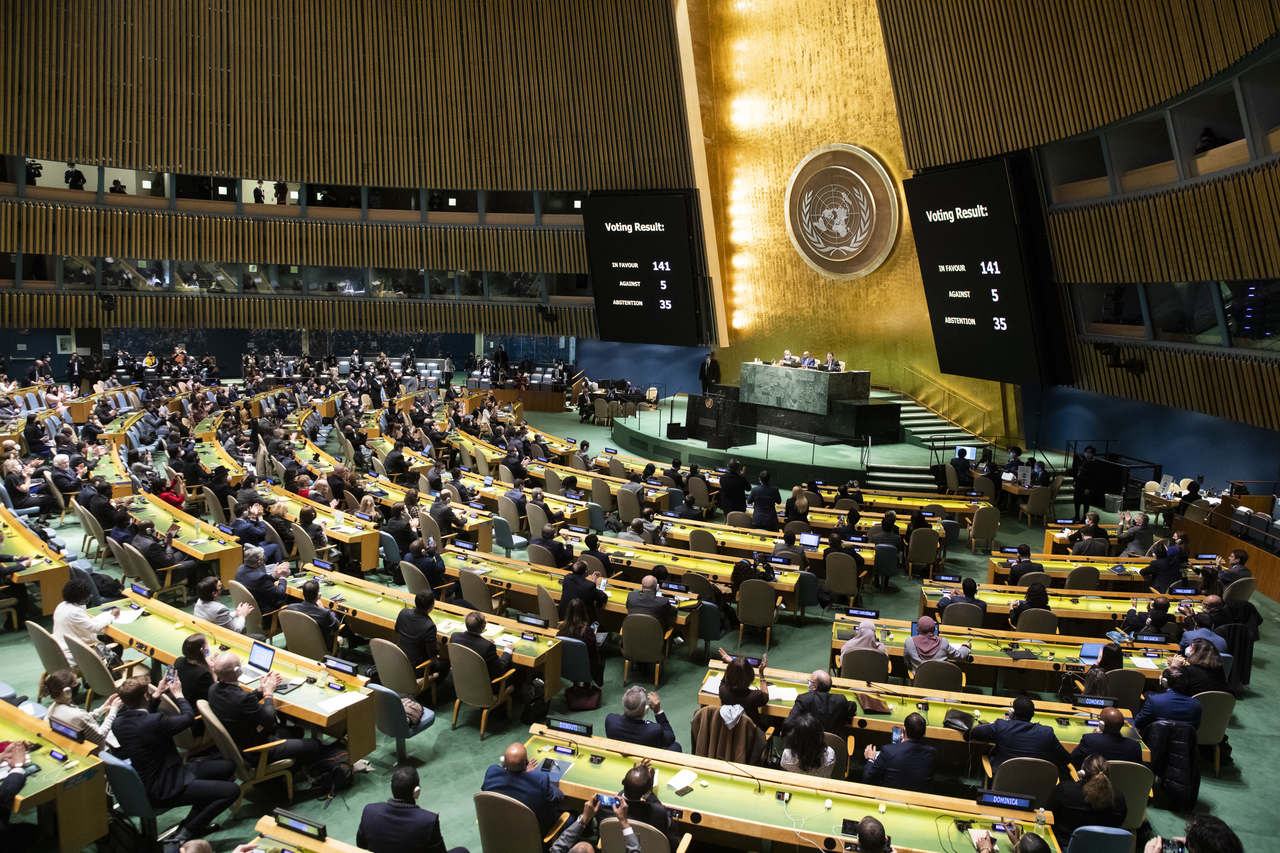Canada's Reaction to the War in Ukraine
During his trip to Europe on 6-11 March, which included a visit to Warsaw, Canadian Prime Minister Justin Trudeau tightened cooperation with NATO allies (Germany, Latvia, and the UK) on support for Ukraine. Following Russia’s attack, Trudeau announced subsequent shipments of military equipment for Ukraine, including lethal weapons. The goal of his trip also was to coordinate economic sanctions and humanitarian aid for refugees. Closer cooperation with Poland on issues of delivering humanitarian help and evacuating Ukrainian refugees from Poland and Central European countries to Canada will be crucial.
 Tomasz Jedrzejowski/Gazeta Polska/Forum
Tomasz Jedrzejowski/Gazeta Polska/Forum
What actions did Canada take following Russia’s attack on Ukraine?
Trudeau unequivocally condemned Russia’s recognition of the independence of the two separatist entities in Donbas and the attack on a sovereign and democratic Ukraine as a violation of international law and the UN Charter. On the first day of the invasion, he announced sanctions against Russian parliamentarians that supported recognising the occupied territories in eastern Ukraine. The PM also decided to increase Canada’s activity in NATO: on 8 March, he ordered a strengthened Canadian contingent in the Latvia-based battle group to an additional 460 troops (raising it to a total of 1,000; Canada is the group’s framework nation) and an artillery battery (4 M777 systems and 120 troops). He also announced that Canada will add about 3,400 soldiers to NATO’s Response Forces and the frigates Montreal and Halifax to the Alliance’s Standing Maritime Group 2 SNMG2. Canada supports suspending Russia’s involvement in international organisations (e.g., INTERPOL) and tightened coordination with G7 partners in this area. Canada also agreed to temporarily pause participation in all meetings of the Arctic Council, in which Russia currently acts as the rotating chairman (until 2023).
What are Canada’s financial sanctions against Russia?
Since Russia’s annexation of Crimea in 2014, Canada has coordinated sanctions against Russia with key partners, including the U.S., the UK, and the European Union. Following the attack on Ukraine, Canada was the first country to revoke the most favoured nation (MFN) clause for Russia and Belarus, which means imposing 35% tariffs on imported goods. Economic sanctions introduced by the federal government include cutting off Russia’s largest banks from the SWIFT transaction system and freezing the reserves of the Central Bank of Russia. Canadians are forbidden from directly or indirectly dealing in Russian sovereign debt and the federal government suspended new export permits for goods to Russia. Personal sanctions froze the assets of members of Russia’s political brass (Vladimir Putin and Sergei Lavrov) and business elites (e.g., Roman Abramovich, who owns 28% of the shares in the steel company Evraz, which operates in Canada) as well as members of their families. Additional sanctions introduced on 2 March were aimed at the Russian energy sector and include 10 individuals associated with the Russian companies Rosneft and Gazprom. The federal government closed Canada’s air space to Russian civilian airliners and banned the import of Russian raw materials, including petroleum (about 2.6% of total imports to Canada). It also announced it will introduce a ban on Russian ships mooring in Canadian ports or internal waters.
What Canadian military, economic, and humanitarian aid has been allocated to Ukraine?
In January and February, the Trudeau government granted loans to Ukraine totalling CAD 720 million ($562 million) for economic reforms and CAD 50 million ($39 million) for development projects. After the invasion, Canada agreed to increase spending on humanitarian aid to CAD 125 million (about $97 million), including for the Canadian Red Cross (CAD 30 million, $23 million). During his trip to London on 7 March, Trudeau, together with the British and Dutch prime ministers, initiated trilateral cooperation on providing humanitarian support to Ukraine.
Canada has delivered arms and war materiel. The first shipment of offensive weapons (pistols, carbines, ammunition) was sent on 14 February and worth CAD 7.8 million ($6 million). The federal government plans on subsequent deliveries of weapons (11 M2 Carl Gustav anti-tank systems, 4,500 M7 rocket launchers, and 7,500 grenades) worth CAD 50 million ($39 million) as well as CAD 25 million ($19.5 million) in military supplies. In addition about 550 Canadians of Ukrainian ethnicity and some military veterans enlisted voluntarily to fight in Ukraine’s International Brigade.
How are local and provincial authorities reacting to the war in Ukraine?
Governments in several provinces (British Columbia, Manitoba, Nova Scotia, and Ontario) banned the sale of Russian alcohol products in provincial liquor stores. Increased activity by the Ukrainian diaspora (about 1.4 million) has led to grassroots initiatives organising military and humanitarian aid. Ukrainian foundations and organisations in Canada are collecting money to purchase and ship necessary items (e.g., blankets, clothing, medicine). They also have raised donations from provincial legislatures, including CAD 5 million ($3.9 million) in Alberta. At the same time Alberta’s premier allocated CAD 5 million for war supplies (helmets, body armour, and medical equipment) for Ukraine’s territorial defence force. Premiers in Alberta, British Columbia, Ontario, and Quebec are cooperating with federal agencies to receive Ukrainian refugees—since 1 January, 7,400 Ukrainians have arrived in Canada. The federal government allows entry for Ukrainians who have family members in Canada through a special visa process. According to the latest information, at least 7,100 Ukrainians have registered to travel to Canada.
What actions might Canada take next?
The growing issue of a possible large-scale embargo on Russian petroleum and natural gas revived a debate among some premiers (especially Alberta’s) about the prospects for increasing the extraction of these natural resources with the goal of responding to shortages on the American and European markets. This conflicts, however, with Trudeau’s policy to reach climate neutrality by 2050 and goal to increase cooperation with European partners on new renewable energy resources.
The Canadian government will continue coordinating rapid actions bilaterally and multilaterally in order to maintain the Ukrainian resistance. Key to this is cooperation with the U.S., EU, and other partners in increasing sanctions on a number of individuals and Russian entities with shares in the Canadian market. At the same time Canada’s engagement in Latvia constitutes a pillar of NATO’s Eastern Flank and the credibility of the Alliance’s deterrence toward Russia. For Poland, close cooperation with Canada is crucial for logistical operations such as providing humanitarian aid to Ukraine and evacuating Ukrainian refugees through Poland to Canada.






